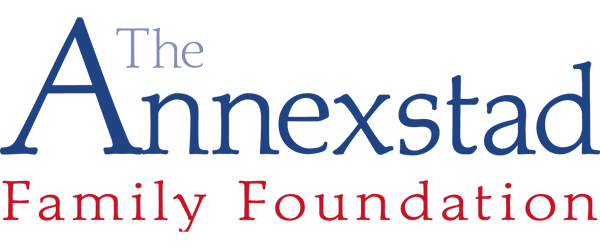
In early 2018, the Honors College at the University of Mississippi hosted two meetings for Black, indigenous and other students of color to gauge interest in forming an organization. “When over 50 students crowded into the meetings, the Ole Miss staff created the Minority Engagement Council (MEC),” says Rachel Coleman, advisor of the MEC at Ole Miss. “I had a bad undergraduate experience myself. By either not looking like my peers or else looking like my peers but not sharing their same interests, I was falling through the cracks.”
On both a personal and a professional level, Coleman appreciates the MEC’s mission to “foster an environment that promotes interconnectivity, cultivates greatness in academia and generates a respectful community that opens dialogue for minority students.”
She’s not alone. Ajah Singleton and Elsi Gabriela Mu.oz Ramos, two first-generation students and Annexstad Family Foundation Scholars, have discovered ways to thrive while in school. Both are members of the university’s Sally McDonnell Barksdale Honors College (SMBHC), where they participate in two supportive academic programs, the MEC and the First-Generation Student Network (First-Gen).
For Singleton, “First-Gen and the MEC fully complement The Annexstad Family Foundation Scholarship,” which is awarded to Ole Miss students who meet three primary criteria: They must exhibit exceptional potential to become leaders in their chosen fields; they must have successfully triumphed over significant personal or family hardship; and their financial situations would otherwise prevent them from attending college.
“All of these programs focus on supporting those who need help,” she adds. As a junior majoring in health care management and the current president of MEC, Singelton notes, “If the Honors College had not established these organizations, I would have been so lonely and isolated.”
Ramos echoes her sentiment of gratitude for the school’s sensitivity to their needs. Having grown up in Mexico, transitioning to the U.S. educational system wasn’t easy when her family moved to Mississippi four years ago. “In high school, my sister and I felt out of place,” she shares. “As a freshman Scholar, the First-Gen and the MEC helped me find a community with people who have had to overcome similar struggles.”
Ashleen Williams, who mentors the First-Gen organization, says “This initiative works specifically to dismantle the hidden curriculum. We focus on service and eliminating the barriers first-generation students might encounter. We provide access to a network of resources and people who can help empower them to succeed at our university.”
Once a first-generation college student himself, Ole Miss Chancellor Glenn Boyce is familiar with the importance of this programming for a transformative school experience and a path to post-graduation opportunities. Boyce grew up in New York and, when he considered transferring to Ole Miss, the school told him to “come on down.” He got in his old, beat-up car and drove more than 1,200 miles to get there. Boyce earned his bachelor’s degree in Education and a doctorate in Educational Leadership at Ole Miss where he also met his future wife. Before becoming chancellor, Boyce enjoyed a career in secondary and post-secondary education spanning more than 37 years.
“The most pivotal point of my life was based on trusting Ole Miss to take care of me,” he says.
“I did my part by coming and they certainly did theirs by investing in my success and changing the trajectory of my life. I’m touched and inspired by how our partnership with The Annexstad Family Foundation is helping us achieve that same tremendous personal impact for our students and their future.”
Cathy and Al have been awarding Scholarships at Ole Miss since 2015. “Education is the great equalizer,” believes Al. “While there are no guarantees for any of us, a first-rate education is the surest path to realizing the opportunities that life has to offer.” Ajah and Elsi are on that path now.
Ramos hopes to work in international affairs between Mexico and China after college, while Ajah plans to become a healthcare administrator and ultimately serve in executive leadership at a major hospital.
“I’m so thankful to the Annexstad Family Foundation for the financial and academic support they provided me,” Ramos says. “I recently contacted the Foundation about my plans after college and they connected me with alumni who provided me with career advice.”
Singleton adds, “As a young Black woman in the South from a low-income family, scholarships were the only way I could aff ord college. Thanks to the Annexstads and Ole Miss, I can achieve my professional goals and build a better future for myself.”

